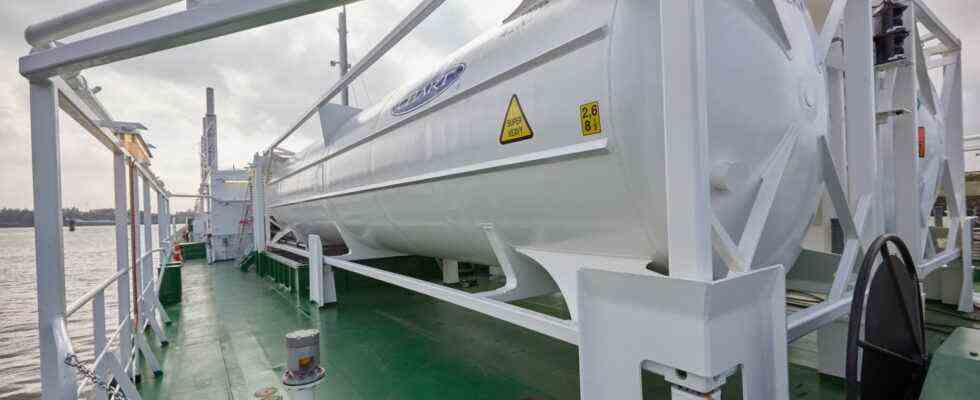Status: 02/27/2022 2:13 p.m
In order to become less dependent on Russian natural gas, Chancellor Scholz is planning to build two liquid gas terminals. In addition, the EU group wants to procure more natural gas on the world markets, he said in a government statement.
Chancellor Olaf Scholz has announced the rapid construction of two liquefied natural gas (LNG) terminals in Germany in response to the Ukraine war and dependence on Russian natural gas.
Scholz named Brunsbüttel, Stade and Wilhelmshaven as possible locations for an LNG terminal. There are many terminals in the EU for LNG, which comes from the USA or Qatar, for example – but so far none of their own in Germany.
There have been plans for this for a long time, but the gas industry has so far complained about the inadequate framework conditions for investments.
“Crucial for German security”
Scholz also announced that he would procure two billion cubic meters of gas in the short term via state-backed so-called long-term options. In addition, the EU group wants to buy more natural gas on the world markets.
Scholz said more would be done to ensure Germany’s secure energy supply. The import dependency of individual energy suppliers should be overcome, he emphasized with regard to Russia, which recently supplied 55 percent of German natural gas.
“A responsible, forward-looking energy policy is not only crucial for our economy and our climate, but also crucial for German security,” said Scholz. The faster the expansion of renewable energies in Germany is advanced, the better.
Habeck wants to examine state subsidies
Economics Minister Robert Habeck (Greens) had already announced that he would push ahead with the construction of a German LNG terminal. A paper from the ministry said that financial state support was to be examined.
According to Habeck, the system, which stores LNG in liquefied form and converts it into gaseous natural gas if necessary, must be built in such a way that it can also be used in the future to handle climate-friendly hydrogen. Habeck had also announced a coal and gas reserve – unlike a state oil reserve, there is no such thing.
Chancellor Scholz also said that the federal government is keeping an eye on the high energy prices. The coalition had already agreed on a relief package. The federal government will get this up and running quickly. “We will not leave the citizens and companies alone in this situation,” said Scholz.
Lifetime extension of nuclear reactors unlikely
Natural gas is necessary as a bridging technology after the planned end of nuclear energy (2022) and coal power (2030). However, against the background of energy security, this data could now be questioned.
“We will have to adjust our assessment for the next few years to the changed situation,” said Finance Minister Christian Lindner (FDP). He advocated the accelerated expansion of wind and solar power: “Renewable energies are energies of freedom,” he said in the Bundestag.
Opposition leader Friedrich Merz from the CDU said he was ready to talk about all energy supply options. However, an extension of the lifetime of the nuclear power plants is considered unlikely, since the industry also rejects it.

